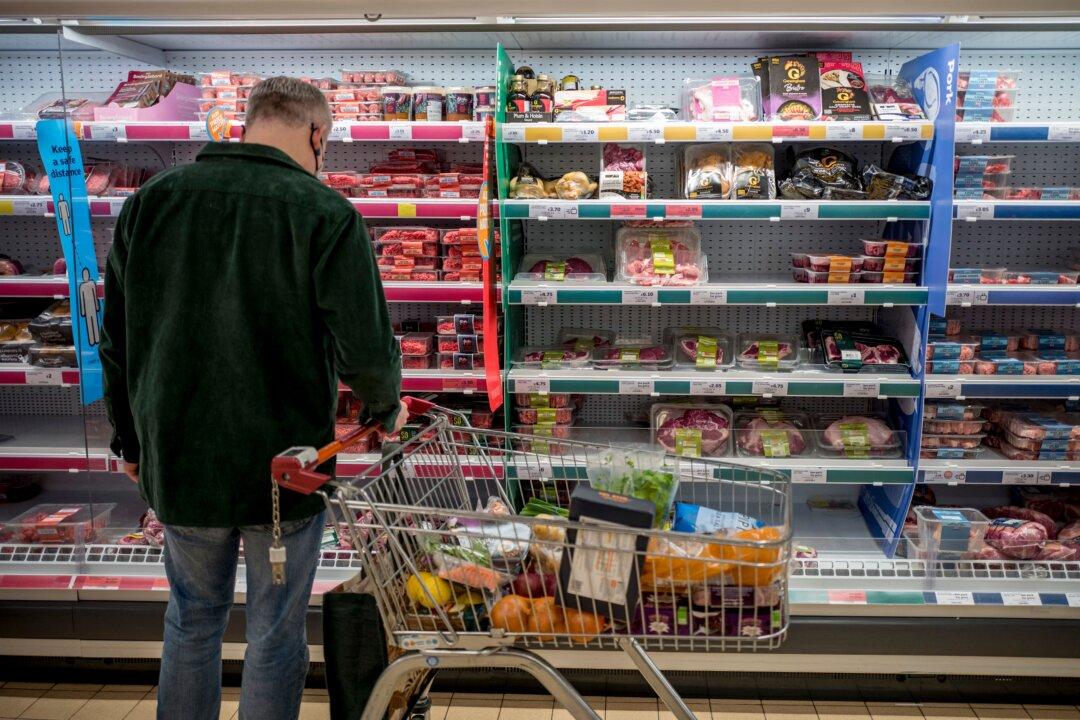Food inflation in the UK reached 15.7 percent in April, the highest on record, but business experts say food prices should begin to fall in the coming months.
According to the latest BRC-NielsenIQ shop price index, food inflation rose to 15.7 percent last month from 15 percent in March.





